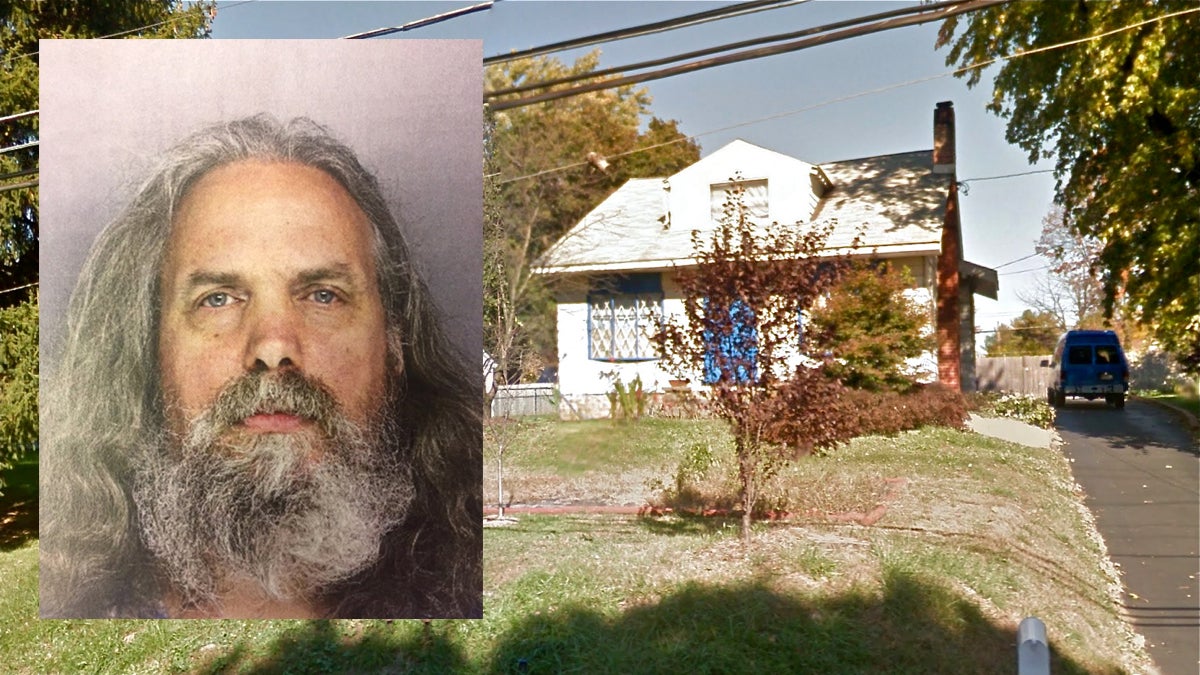Dozen Amish girls staying together as interviews, support continue in Kaplan case
Listen
Lee Kaplan was charged with aggravated indecent assault after police found 12 girls ranging in age from 6 months to 18 years in his Feasterville
Last weekend, a media frenzy was directed at Lee Kaplan, the Bucks County man arrested on charges of sexually assaulting a teenage girl in his keeping.
The girl — now 18 — and 11 younger girls found living in Kaplan’s house have been removed as questions about what they went through and why weren’t they discovered sooner remain.
In interviews with police, the girl’s parents said they “gifted” their daughter to Kaplan, as thanks for financial help.
After combing Kaplan’s Feasterville house and yard for evidence of other crimes over the weekend, Bucks County District Attorney David Heckler said the charges against the 51-year-old are still based solely on the sexual abuse of the oldest girl.
“The gifting of the young woman who was 14 at the time … to be treated as a wife-concubine … clearly, that’s child abuse,” said Heckler. “But the broader question of the rest of the kids — why were they living there, what else was going on — we’re investigating.”
Police also arrested Daniel and Savilla Stoltzfus, parents of 10 of the children, including the 18-year-old, and are holding them and Kaplan on $1 million bail.
Heckler said child advocates, who are trained to talk to kids of different ages about crimes they may have experienced, are interviewing the other children this week. Kaplan fathered two children living in the house with the teenage girl.
David Finkelhor, director of the Crimes Against Children Research Center at the University of New Hampshire, said when families participate in exploiting their own children, there are a few reasons why it may not be reported.
“Often times, there are people who do know or have some suspicion,” he said. “But, they didn’t feel empowered, or were intimidated or didn’t care enough to report anything.”
Even among cases where children are sexually abused, this one is unique, according to Finkelhor. The girls were home-schooled, and their parents are former members of a Lancaster-area Amish community. Each of those factors stacked the deck against the authorities stepping in.
According to Finkelhor, kids who are homeschooled and come from closed communities may not come into contact with people — teachers or doctors — who are required by law to report suspected child abuse.
“When kids aren’t going to school, there should be some other ways of performing some supervision so that their well-being is secure,” said Finkelhor.
Pennsylvania expanded its mandate for who must report suspected abuse in 2014 to include many more categories of social and child welfare workers, but it doesn’t go as far as New Jersey, which requires anyone to report when they have “reasonable cause” to believe a child is experiencing abuse.
Neighbors reported calling the police and Childline, the state’s abuse hotline, a number of times before a tip last week led to Kaplan’s arrest. According to those familiar with police records, during a previous visit, the parents of the children were present and criminal activity was therefore not suspected.
As happened in the abduction of Jaycee Dugard, said Finkelhor, “It turns out police did visit these households and didn’t really pick up on anything being wrong and the kids or the victims were too intimidated to use that occasion to get help.”
“It could be law enforcement doesn’t have enough training” to search for signs of abuse, he said.
Without knowing more about the girls’ social ties or whether the younger children also experienced trauma, after care for the children could mean any number of things.
“Our resilience comes from within, and it can be amplified or muted by whether a person has support around them,” said Kristen Houser, chief public affairs officer with the Pennsylvania Coalition Against Rape.
Social workers affiliated with the coalition said the children could experience trauma from being moved suddenly or being scrutinized by police, according to Houser.
The court has placed all 12 in supportive housing in Lancaster.
“We felt it important that the children be kept together,” said Heckler.
WHYY is your source for fact-based, in-depth journalism and information. As a nonprofit organization, we rely on financial support from readers like you. Please give today.

